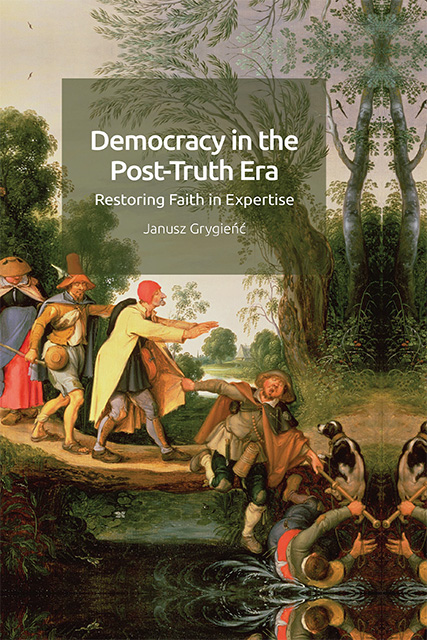Book contents
- Frontmatter
- Contents
- List of Tables
- Acknowledgements
- Introduction: Post-Truth and the Dawn of Illiberal Democracy
- Chapter 1 Expertise in Liberal Political Theory: Problems and Discrepancies
- Chapter 2 Expertise: Promises, Perils and Limitations
- Chapter 3 Laymen, Experts and Epistemic Dependence
- Chapter 4 Epistemic Dependence and Political Theory: Dependence Changes Everything
- Chapter 5 Inclusive Epistocracy, Competence and Popular Rule
- Epilogue: Living in a World of Too High Expectations
- Bibliography
- Index
Introduction: Post-Truth and the Dawn of Illiberal Democracy
Published online by Cambridge University Press: 18 October 2023
- Frontmatter
- Contents
- List of Tables
- Acknowledgements
- Introduction: Post-Truth and the Dawn of Illiberal Democracy
- Chapter 1 Expertise in Liberal Political Theory: Problems and Discrepancies
- Chapter 2 Expertise: Promises, Perils and Limitations
- Chapter 3 Laymen, Experts and Epistemic Dependence
- Chapter 4 Epistemic Dependence and Political Theory: Dependence Changes Everything
- Chapter 5 Inclusive Epistocracy, Competence and Popular Rule
- Epilogue: Living in a World of Too High Expectations
- Bibliography
- Index
Summary
EXPERTISE IN CRISIS
Scientists and journalists have increasingly been calling our attention to an alarming drop in our faith in the authority of expertise. Although doubt in the good intentions and competence of experts has been on the rise since the 1970s, it seems to have reached unprecedented proportions lately. A whole host of factors are to blame for this, including spectacular expert gaffes, as seen in the failure to predict political and economic crises, to understand their nature and repercussions, and to come to agreement on most of the problems discussed in the public realm. On the other hand, the increasing privatisation of scientific research has bolstered the view that experts who are financially dependent on private sponsorship are simply biased. The social dynamics of this crisis have been brought into stark relief by the COVID-19 pandemic. The worldwide health crisis has shown just how much both citizens and politicians are dependent on expertise. Expert opinions on how the pandemic would develop and how to combat it were suddenly in huge demand. It is true that on many occasions politicians made instrumental use of expert authority to justify the measures they were taking in order to avoid political responsibility for the consequences of their actions. However, it is now the norm for politicians to comply with the recommendations of scientific advisory bodies. The pandemic has also mercilessly laid bare the flaws of scientific communication. The lability and multiplicity of expert opinions; the evolution of hypotheses and forecasts; contradictory positions with regard to the existence, thresholds and possibility of achieving herd immunity; changing recommendations regarding the effectiveness of protective measures, including masks and face shields – all of these combined to create a chaotic communication environmentthat citizens found hard to navigate. New reports on the side- effects of the AstraZeneca vaccine generated alternating waves of readiness and unwillingness to get vaccinated. The pandemic also revealed how populist politicians were ready to flout expertise and the sorry consequences that this eventually produced.
The COVID-19 crisis exposed an entire macrocosm of inflammatory points at the intersection of expertise, political power and public opinion. It highlighted the fact that expert institutions and pharmaceutical companies may pressure political authorities by dictating vaccine prices and delivery dates. It witnessed the debacle of state-funded research institutions in competition with private companies that were able to patent successive vaccines.
- Type
- Chapter
- Information
- Democracy in the Post-Truth EraRestoring Faith in Expertise, pp. 1 - 20Publisher: Edinburgh University PressPrint publication year: 2023



